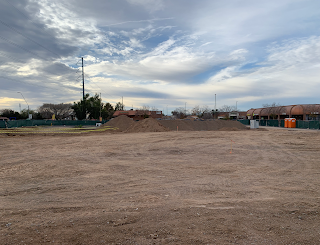Being a cowhand, not a cowboy, in old-time Phoenix
Although nowadays most of us are comfortable describing anyone who works with cows as a "cowboy", it's not really what most of these people prefer to be called. And I don't mean "cowmen", either. The preferred term in old-time Phoenix, as now, is "hand". And that applies to people of any age, and gender. To be told that you're a useful hand at a ranch is a compliment.
Of course, nowadays no one is really going to be all that offended by "cowboy", in spite of the word "boy", which really applies to humans of the male gender of a young age. Our language includes the word "boy" for grown men combined with "boyfriend" or "playboy", but really most men don't want to be referred to as a "boy". And most women would prefer not to be called boys, either! Cowboys, maybe. But in old-time Phoenix, they were cowhands, if they were good at their job.
And while we're on the subject of cowhands, let's take a look at what they would have looked like. Yes, most of the people who worked with cows would be young men, but the image of the classic cowboy from the movies really isn't true. Yes, there would have been plenty of young men who looked like Roy Rogers, but there would have been many who wouldn't have. They would have looked like anyone that you see walking around Phoenix today, of all nationalities, and races. Yes, there were Indian cowboys. Of course! And there would have been cowhands who spoke with a foreign accent, like Yule Brenner in "The Magnificent Seven". It was a job that required stamina, and knowledge of the workings of a ranch, it didn't require you to look a certain way, or talk a certain way. And of course there were female cowhands, which should come as no surprise to anyone who has ever seen a young woman in complete control of a huge horse. That's always amazed me - I'm afraid of horses, being a city boy!
So there you go. And if you don't mind, I'll get out my guitar and sing a bit whilst I'm setting a-here at my computer...
I'm an old cowhand
From the Rio Grande
But my legs ain't bowed,
And my cheeks ain't tan
I'm a cowboy who never saw a cow
Never roped a steer
'Cause I don't know how
Sure ain't a fixing to start in now
Oh, yippie yi yo ka-yah, yippie yi yo ka-yah...
Image at the top of this post: cows in Phoenix in the 1940s. You're looking north towards Squaw (Piestewa) Peak.
If you liked this article, and would like to see more, please consider becoming a patron of History Adventuring on Patreon. If you're already a patron, thank you! You make this happen!
Click here to become a Patron!
History adventuring posts are shared there daily. The basic tier is a dollar a month, and the PhD tier, which includes "then and now" photos, billboards, aerials, videos, and super high-definition photos, is five dollars a month, and is discounted for seniors, veterans, and students.




Comments
Post a Comment